15+ Sample Study Schedules
-

Study Schedule for the Academic
download now -
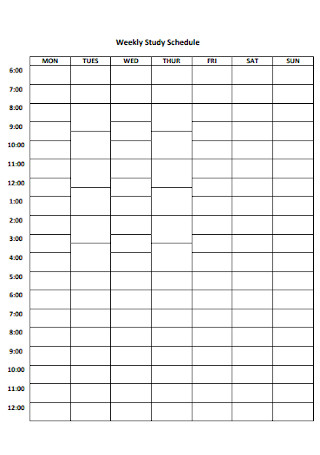
Weekly Study Schedule Example
download now -
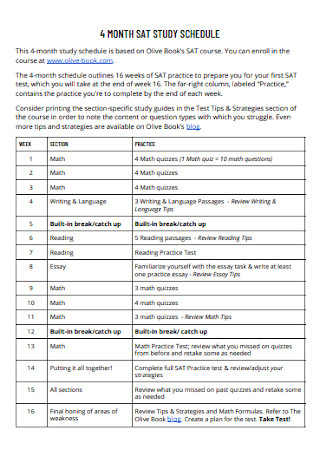
Study monthly Schedule
download now -
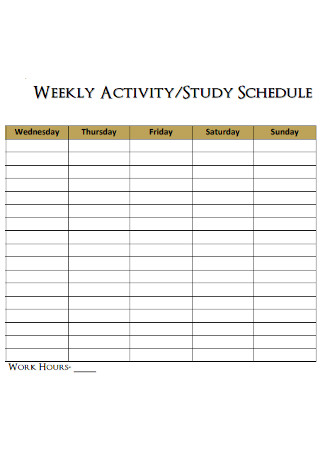
Study Activity Schedule Template
download now -
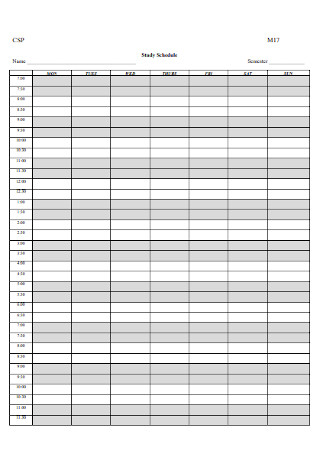
Study Schedule Format
download now -
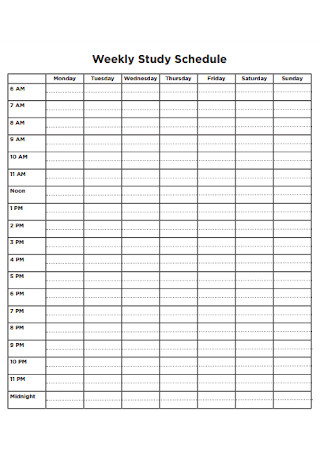
Weekly Study Schedule Format
download now -
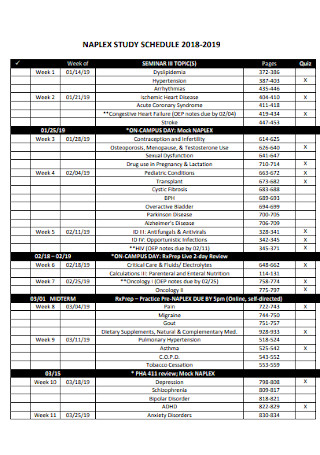
Simple Study Schedule Template
download now -
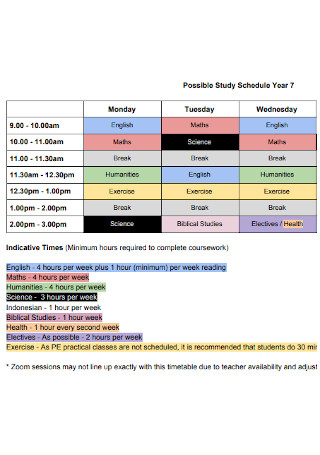
Possible Study Schedule
download now -
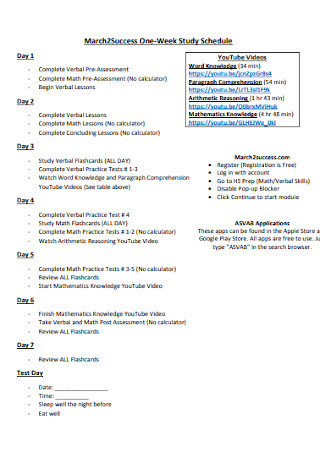
One-Week Study Schedule
download now -

Study Schedule for Exam Template
download now -
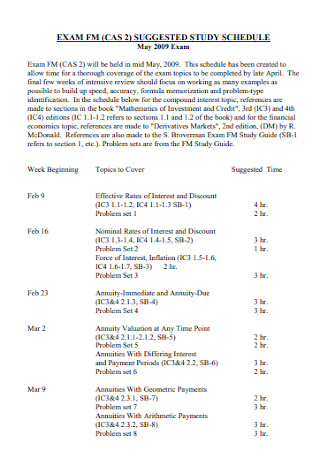
Exam Study Schedule Template
download now -
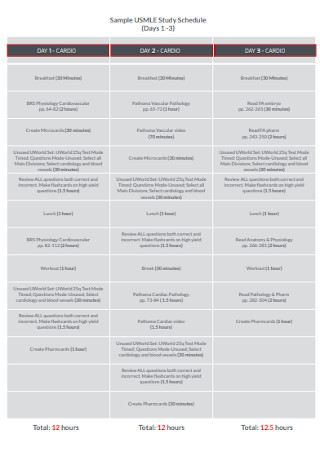
Sample Study Day Schedule
download now -
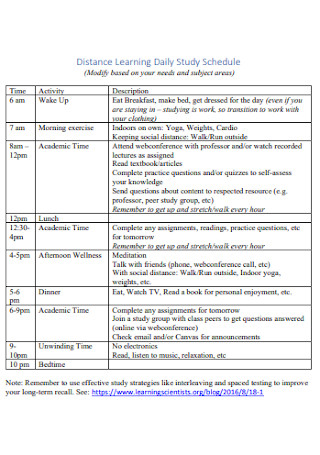
Daily Study Schedule
download now -
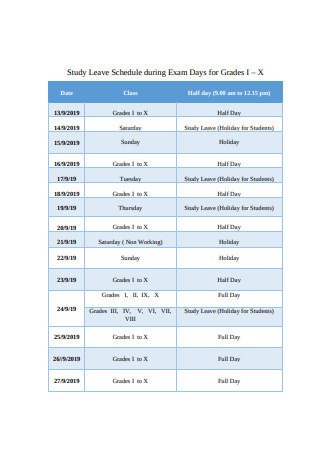
Study Leave Schedule
download now -
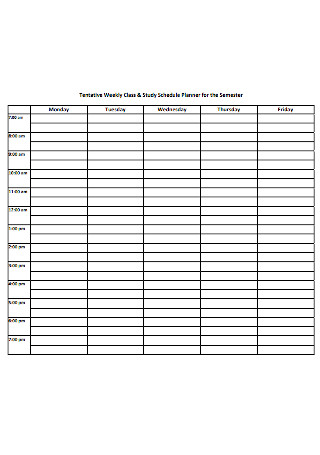
Study Schedule Planner for Semester
download now -
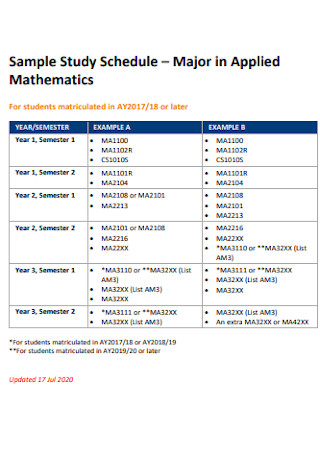
Sample Study Mathematics Schedule
download now
Study Schedules: What Are They?
A study schedule is self-explanatory; it is every student’s study guide where everything is planned according to a certain schedule. This schedule lays out every subject or course to study and the specific time and date of when they must all be studied. Oftentimes, study schedules come in handy when an upcoming exam ensues. And whether a student is from elementary, middle school, high school, or college, a study schedule will help in keeping track of schoolwork.
Did you know that studious pupils study around 50–60 hours per week?
What Are the Parts of a Study Schedule?
What is great about study schedules is there is no correct formula on how to make them. You can make it your own or according to what suits your study plans more effectively. But, there are common denominators noticed in every standard study schedule. And they would mostly consist of the following parts:
How to Craft a Smart Study Schedule
According to the University of Florida, studious students often study 50–60 hours each week. While you may say it is easier said than done, that is actually quite possible in your case. What you need is to commit to a smart study schedule. And you can create one by following these four easy steps:
Step 1: Assess Your Purpose and Review What to Study
Start reflecting by assessing your main purpose of studying. Are you planning a short-term study schedule like acing a finals test? Or maybe a long-term study schedule where you need to work hard for a college scholarship program? Stick to your purpose. Next, identify and review what you need to study. You will eventually jot down the subjects to study afterward.
Step 2: Set Your Priorities and Difficulties
After listing the subjects to study, determine the priority level and difficulty level of each subject. You can come up with a scale of very important, average, and least important for the priority levels. Ensure that you will focus first on the most important parts before studying the least important ones. Also, do the same for the difficulty level’s scale—difficult, average, and easy. Expect to put more time and effort into studying difficult subjects while you can manage the easy ones shortly.
Step 3: Incorporate Schedules into Your Studies
The most crucial part of your study schedule is to incorporate the schedules into your studies. This section is where you begin plotting which subjects must be studied from the very first day until the last. Do not just decide the sequence randomly because you can’t forget about their priority or difficulty levels, as discussed earlier. Learn how to manage time by ensuring you have enough room for studying while also considering other responsibilities.
Step 4: Be Creative and Flexible
Apply your creative ideas in a study schedule too. Who says there is no room for fun in your schedule? You can design the schedule with your favorite colors or even doodle on some parts like a bullet journal. And by being creative, you can also apply that to how you divide your time creatively. For example, you may take snacks in the middle of two difficult subjects to power you up. And most importantly, be flexible. Indeed, schedules guide you with what to do first until the end. But, unexpected circumstances may occur like facing emergencies, new plans, and other considerations that could affect your whole schedule. Thus, learn how to adjust flexibly.
FAQs
Why is a study schedule important?
A study schedule is crucial for every student so they will know what specific subjects to study and when to actually do them. And since students face different challenges in school while also busy with their personal lives, study schedules are the best reminder of how to achieve their academic goals strategically.
Who benefits from study schedules?
Students are the standard target audience of study schedules. But it can also be anyone who needs to study for a driver’s license test, business meeting, and more.
When is the appropriate time to study?
The answer all leads down to you. There is a polarizing difference between how people like to study since some may like studying during the morning (like around 5:00 AM–10:00 AM) or perhaps, during the afternoon or nighttime (probably between 5:00 PM–9:00 PM).
Stick to your study schedule responsibly. Yes, it is easy to create study schedules, particularly with premade sample study schedules that are provided above. But the challenge lies with how you perform in following the schedule. As students may get very busy with their lives, losing track of time is quite common. And that alone proves how a single study schedule could save your academic success.
